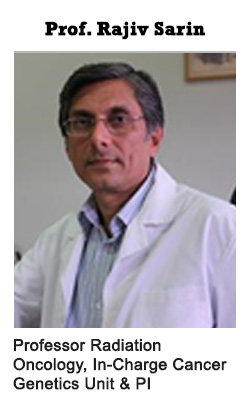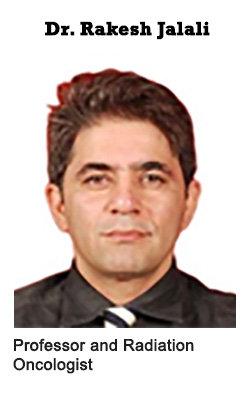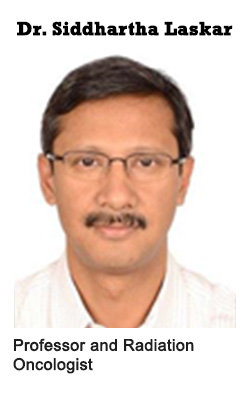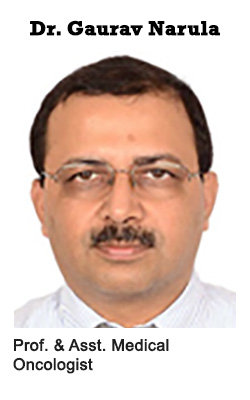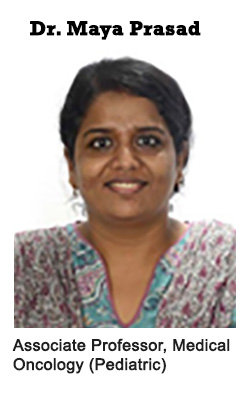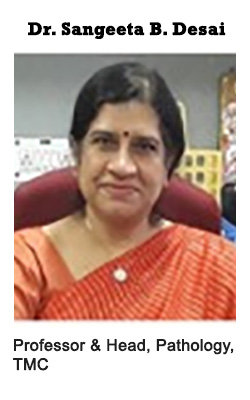Tata Memorial Hospital
The Tata Memorial Hospital is situated in Parel, Mumbai in India. It is a specialist cancer treatment and research centre, closely associated with the Advanced Centre for Treatment, Research, and Education in Cancer (ACTREC). In 1957 the Ministry of Health took over the Tata Memorial Hospital Mumbai. The transfer of the administrative control of the Tata Cancer hospital (Tata Memorial Hospital & Cancer Research Institute) to the Department of Atomic Energy in 1962 was the next major milestone.
Starting as an 80-bed hospital covering an area of 15,000 square meters, Tata memorial hospital Mumbai now has more than 600 beds spread over almost 70,000 square meters. The annual budget of Rs5 lakh in 1941 is now close to Rs120 crore. It is a landmark on the global health map and particularly important to this part of the world. Nearly 25,000 patients visit the clinics each year, not only from all over India but all over the world.
If you are looking for the best cancer care in India, you are at the right place. ClinicSpots helps patients seeking cancer care in India .to get the best treatment at the most affordable prices. We offer you complete support for obtaining the best cancer treatment in India. ClinicSpots advertises its services internationally and helps foreign patients who want treatment in India by providing all types of facilitation services & the greatest team of doctors will provide you with all medical recommendations, diagnoses, and treatments for cancer care.
Book A Appointment
Our staff will get in touch with you
Start your Journey to Good Health
with Clinicspots India
Departments
Surgical Oncology

Surgical oncology is a specialized medical field dedicated to the surgical treatment of cancer. It involves diagnosing, staging, and surgically managing various types of cancerous tumors. Surgeons in this discipline are highly skilled in performing intricate procedures, striving to remove tumors while preserving as much healthy tissue as possible. Precision and expertise are crucial for ensuring the best outcomes for patients undergoing these operations. This field often collaborates closely with other oncology specialties, such as medical and radiation oncology, to provide comprehensive and personalized care for each patient.
Department of Medical Oncology

Medical oncology is a medical specialty dedicated to diagnosing, treating, and managing cancer using non-surgical methods. These methods include chemotherapy, immunotherapy, hormone therapy, and targeted therapy. Medical oncologists are skilled in choosing and administering these treatments, customizing them to meet each patient's unique needs. They collaborate closely with other oncology professionals to offer a comprehensive, multidisciplinary approach to cancer care, aiming to enhance survival rates and the quality of life for their patients.
Department of Radiation Oncology

Radiation oncology is a medical specialty that focuses on treating cancer using high-energy radiation. Radiation oncologists precisely target cancer cells with radiation to destroy or damage them, aiming to minimize harm to surrounding healthy tissue. Advanced technologies, such as IMRT (intensity-modulated radiation therapy) and proton therapy, are often employed to enhance treatment accuracy and effectiveness. This field is integral to a multidisciplinary cancer treatment approach, often working alongside surgical and medical oncology to provide holistic care. Radiation oncology plays a crucial role in both curative and palliative cancer therapies, helping to control symptoms and improve patients' quality of life.
Department of Preventive Oncology

Preventive oncology is a specialized field that focuses on reducing the risk of cancer through early detection, lifestyle modifications, and vaccination. It involves identifying genetic, environmental, and lifestyle factors that contribute to cancer development and implementing strategies to mitigate these risks. Preventive oncologists emphasize the importance of regular screenings, such as mammograms and colonoscopies, to catch cancer at its earliest, most treatable stages. This field also advocates for public health initiatives and educational programs to promote cancer awareness and healthy living. By prioritizing prevention, it aims to decrease cancer incidence and improve long-term health outcomes.
Department of Surgery

The surgery department is a critical component of medical care, specializing in performing operative procedures to diagnose, treat, and manage various conditions and injuries. Surgeons in this department are skilled in a wide range of techniques, from minimally invasive laparoscopic surgeries to complex open procedures. The department often includes various subspecialties, such as cardiovascular, orthopedic, and neurosurgery, each focusing on specific body systems. It plays a pivotal role in emergency care, trauma response, and elective surgeries, ensuring patients receive timely and effective interventions. The surgery department is also at the forefront of adopting innovative technologies and surgical methods to enhance patient outcomes and recovery times.
Department of Cancer Cytogenetics

Cancer cytogenetics is a specialized field that studies the genetic abnormalities in cancer cells. By analyzing chromosomal changes, such as translocations, deletions, and duplications, cytogeneticists can provide crucial insights into cancer diagnosis, prognosis, and treatment options. Techniques like fluorescence in situ hybridization (FISH) and karyotyping are commonly used to detect these genetic alterations. This field is instrumental in identifying specific genetic markers that can guide targeted therapies and personalized treatment plans. Cancer cytogenetics helps advance our understanding of the genetic basis of cancer, contributing to the development of more effective and precise interventions.
Department of Cytopathology

The Department of Cytopathology is dedicated to diagnosing diseases at the cellular level, with a primary focus on identifying cancer and precancerous conditions. Utilizing techniques such as fine needle aspiration (FNA) and exfoliative cytology, cytopathologists examine cell samples from various body sites to detect abnormalities. This department plays a crucial role in early cancer detection, often providing rapid and minimally invasive diagnostic results. It also collaborates closely with other medical specialties to ensure accurate diagnoses and guide treatment decisions. The expertise of cytopathologists is essential for interpreting complex cellular changes and advancing personalized medicine.
Department of Digestive Disease and Clinical Nutrition

In addition to overseeing nutritional health, the Department of Digestive Diseases and Clinical Nutrition specializes in the diagnosis and treatment of conditions affecting the pancreas, liver, and digestive system. It covers a wide range of illnesses, from common problems like irritable bowel syndrome and acid reflux to more serious situations like liver cirrhosis and Crohn's disease. The department's clinical nutrition experts provide individualized meal plans designed to improve patients' general health and speed their recuperation. By utilizing cutting-edge diagnostic techniques including liver biopsies and endoscopies, the department guarantees accurate diagnosis and treatment of gastrointestinal illnesses. It is essential for supporting digestive health and maximizing dietary plans in order to improve patient outcomes.
Department of Pulmonary Medicine

Pulmonary medicine, also known as pulmonology, is a specialized branch of medicine focused on diagnosing and treating diseases related to the respiratory system. This includes conditions such as asthma, chronic obstructive pulmonary disease (COPD), pneumonia, and lung cancer. Pulmonologists are experts in assessing lung function and providing comprehensive care to patients with respiratory disorders. They employ advanced diagnostic techniques like pulmonary function tests and imaging studies to evaluate lung health accurately. Pulmonary medicine plays a crucial role in improving respiratory function, managing chronic conditions, and enhancing overall quality of life for patients.
Department of Dental Services

Dental services encompass a wide range of oral health care provided by trained professionals, including dentists, dental hygienists, and dental specialists. These services aim to prevent, diagnose, and treat dental conditions to maintain optimal oral hygiene and health. They include routine check-ups, cleanings, fillings, and treatments for gum disease. Dental services also cover restorative procedures such as crowns, bridges, and implants to restore functionality and aesthetics. Additionally, dental care extends to educating patients on proper oral hygiene practices and promoting preventive measures. Access to comprehensive dental services is essential for overall well-being, as oral health contributes significantly to systemic health and quality of life.
Please Fill Out the Form Below so
that We Can Assist you With your Request!!
Doctors
Connect With Top Specialists in India
THE WORLD OF CARE
International Patient Services

Contact
Need Help? Contact Us




